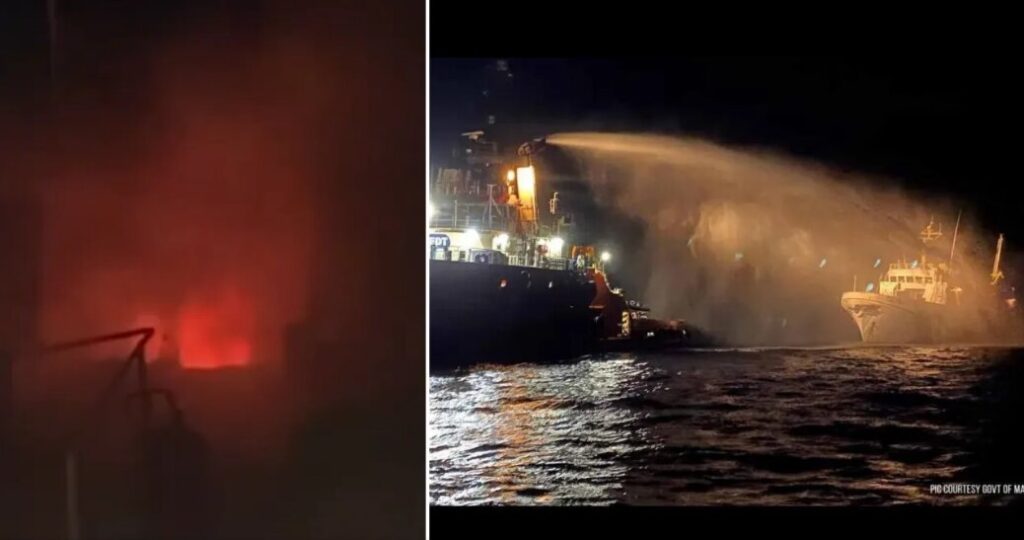Tehran – On May 2, 2025, Conscience, a vessel belonging to the Free Fleet Union (FFC), which carries humanitarian aid and activists to Gaza, was attacked by armed drones in international waters near Malta. The attack, which was attributed to Israel by the FFC, caused fires and great damage to the ship, putting the lives of 30 human rights defenders at risk.
The attack is a clear violation of international law, a harsh example of Israel’s continued efforts to maintain the illegal blockade of Gaza, to impose collective punishments on civilians, and to carry out what many critics describe as a genocide campaign.
Historical context
The Israeli blockade of Gaza, which has been in effect since 2007 and has been tightening since March 2, 2025, must be considered when analyzing attacks on conscience. The Gaza Strip is currently experiencing a serious humanitarian crisis as a result of this lockdown, restricting the intrusion of essential items such as food, medicines and fuel.
A widespread unemployment, poverty and food insecurity have repeatedly warned the UN and other international organizations that Gaza is on the verge of collapse. Israeli military attacks have repeatedly destroyed infrastructure and killed thousands of Palestinian civilians, making the situation worse.
The Freedom Flotilla Coalition has been organising missions in Gaza for many years to challenge the lockdown and provide humanitarian aid.
This is not the first time that a fleet of aid has been attacked by Israel. In 2010, Israeli Commandos stormed Mabi Marmara, part of the Turkish ships of the first Gaza Free Fleet, killing nine activists in international waters.
The incident caused a major diplomatic rupture between Israel and Turkey, but Israeli officials were not responsible.
Fifteen years later, the pattern repeats. This is in a more deadly context and in a broader sense.
The fleet attack ignored international practices
The Freedom Frotira coalition still exists in the goal of breaking the Gaza blockade and obtaining humanitarian aid for the Palestinian people even after recent attacks. They say they want to continue organizing missions to Gaza and hold Israel accountable for what happened.
The Union calls on the international community to oppose attacks on conscience and take real steps to lift the Gaza blockade. They also seek an independent investigation into the attack and hope to face justice for those behind it.
That attack on conscience was not just wrong. It broke international law. Targeting civilian ships in international waters opposes the laws of the sea and the United Nations Convention on the Geneva Convention. It also ruins the principle of freedom of navigation and the right to provide assistance to those in need.
Additionally, Israel’s blockade of Gaza serves as a collective punishment, which is not permitted under the Fourth Geneva Convention. This blockade isn’t just about cutting off supplies. It aims to hurt the civilians of Gaza and cause real suffering to them
International reaction
The world’s response to an attack on conscience was rather quiet. Some governments and groups have expressed concern, but have not strongly criticized Israel or called for it to be held accountable.
The Maltese government issued a modest statement saying they were “worried” about what happened and wanted more details. Meanwhile, EU officials remain largely silent, and some member states seem to be thwarting further fleet efforts, as they do not want to disrupt Israel.
Francesca Albanese, the United Nations Special Rapporteur for Palestinian Territories, said he received a call from the crew of Freedom Frotira and urged the country to support them. However, this weak international response appears to allow Israel to continue to act without facing real consequences for breaking international law and damaging people’s rights.
A drone strike against conscience is more than just a one-off event. It shows a bigger pattern of Israel as Israel cut off Gaza and is trying to make life even more difficult there.
The incident shows just how dangerous it is for aid workers trying to help Gaza people during ongoing attacks and lockdowns. It is clear that there is a real need for aid and safe routes for civilians to pass through.
Attack on the Gaza-Aid Fleet as Israel faces ICJ scrutiny
In what constitutes a prominent legal event following the recent drone attack on the Gaza aid fleet, which is currently facing scrutiny by the International Court of Justice (ICJ), the UN’s leading judicial body. On May 2, the ICJ concluded a week-long hearing on whether Israel is needed to ensure an uninterrupted flow of critical humanitarian assistance for Palestinians in Gaza and the West Bank.
These ICJ hearings also provide important legal and humanitarian contexts regarding drone attacks on the Gaza Aid Fleet. The attack on civil aid vessels operating in international waters outside Malta is yet another development in Israel’s sustained action to implement Israeli blockades and limit humanitarian access to Gaza.
The minutes of the ICJ show the growing impatience within the international community, accompanied by Israeli policies.
This addition contextualizes fleet vessel attacks, strengthens criticism of Israel’s actions, and shows the urgent need for the world to be held accountable in the broader context of international legal procedures that question Israeli blockades and restrictions on humanitarian assistance to Gaza.

